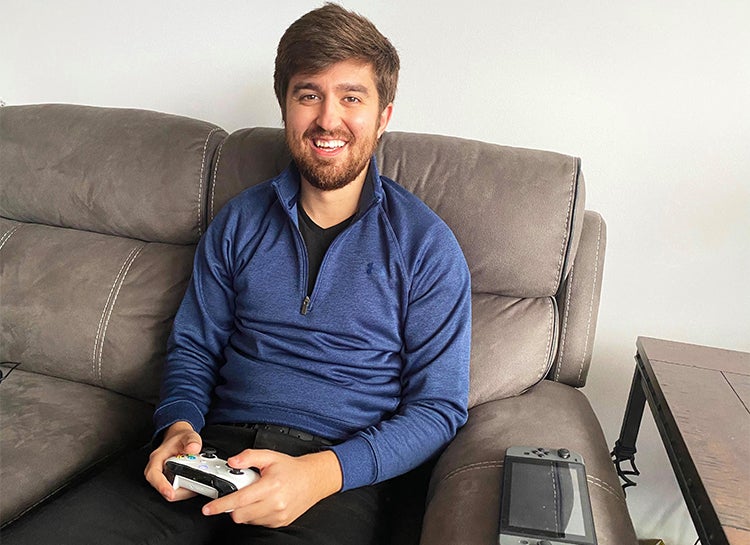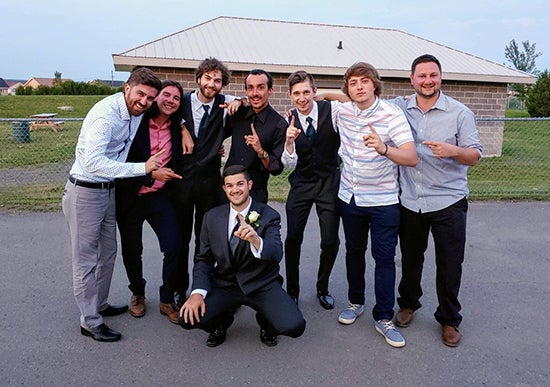
Pastime potential: Social connection in online gaming
The world of video games is evolving. Not only has gaming become a massively popular spectator sport, even universities are growing their varsity rosters with e-sports teams. Add physical distancing requirements due to COVID-19, and the release of the newest generation of Xbox and PlayStation consoles, and gaming rates will continue to soar.
These trends are what makes the work of Recreation and Leisure Studies PhD student Joseph Todd so relevant. Joe plans to examine the capacity for online gaming to create community and friendships that can transcend the online space. With his research, Joe hopes to eventually shape the platforms that facilitate these social connections and enhance their systems, policies and procedures.
Joe’s personal experience is a testament to the meaningful connections that can be built through gaming. In 2013, he and a few friends started an e-hockey team and they’ve been playing together ever since. It wasn’t until 2019 when their goalie, Max, got married that Joe had the opportunity to meet some of his teammates in person for the first time. This is when Joe realized that “there is something more to gaming and relationships in gaming, and that appealed to me,” he said. It was at that wedding that the idea for his PhD research was born.
Now in second year of his PhD, you may be more likely to find Joe reading or writing about video games than playing them. In addition to his studies, Joe is actively engaged in advocating for the gaming community and highlighting the benefits games have for individuals and society. For example, Joes recent articles in The Conversation discuss the potential for online gaming to combat social isolation (especially in times of physical distancing), facilitate learning and skill development in kids, create community and connection and to evolve into a serious leisure pursuit or professional gig.

Joe and his e-hockey team celebrating at their goalies wedding. This was the first time Joe met some of his long-time gaming friends in person.